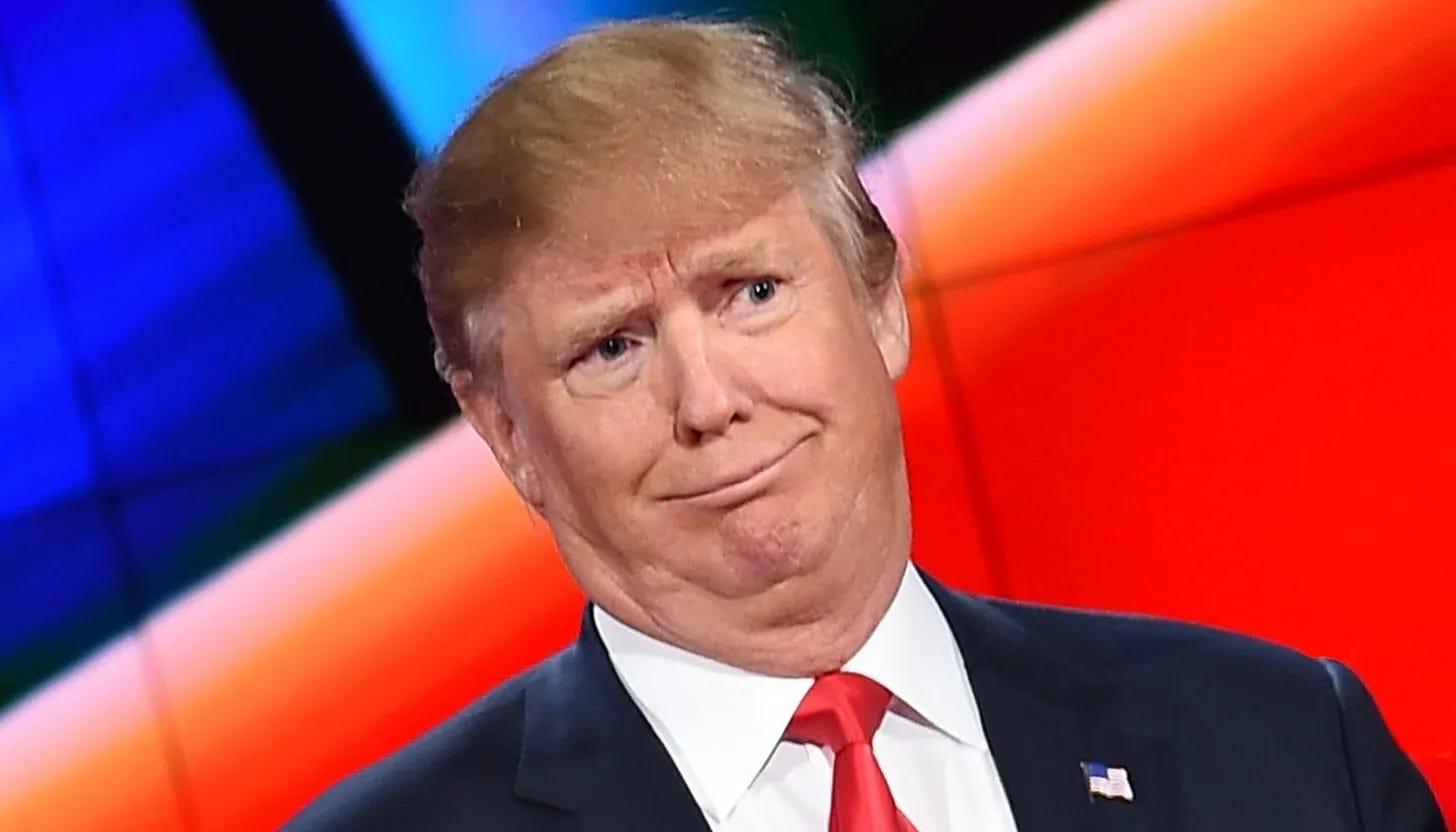Revealed: The Secret Behind Trump’s Stupidity
The Trump Show: When Ignorance Meets Arrogance
In the grand theater of American politics, we've been treated to a spectacle that would make even the most outlandish reality TV producer blush.
Ladies and gentlemen, I present to you “The Trump Show,” where ignorance meets arrogance in a dance so mesmerizing, it's almost beautiful – if it weren't so terrifying.
The Self-Proclaimed Stable Genius Who Can't Find His Own Shoes
Enter Donald Trump, the poster child for the Dunning-Kruger effect. For those unfamiliar with this psychological phenomenon, it's when someone is so incompetent that they cannot recognize their own incompetence.
In other words, Trump is too stupid to realize he is stupid!
In Trump's case, it's like watching a toddler confidently explain quantum physics while eating glue.
Our dear leader has graced us with gems of wisdom that make you wonder if he's secretly a comedy writer's fever dream.
Remember when he suggested injecting disinfectant to cure COVID-19? Doctors everywhere facepalmed so hard you could hear it from space. But in Trump's mind, he was probably up for a Nobel Prize in Medicine.
Ignorance is Bliss: How Trump's Followers Celebrate His Incompetence
But wait, there's more! The Dunning-Kruger effect isn't just a one-man show. It has a whole supporting cast, including Trump's loyal followers.
These folks are so deep in the cognitive bias rabbit hole that they'd probably argue that the Earth is flat if Trump tweeted it at 3 AM.
It's like watching a bad reality show where the contestants think they're on "Are You Smarter Than a 5th Grader?" but they're actually on "America's Funniest Home Videos."
And the laugh track? That's the rest of the world watching in disbelief.
The Art of Not Knowing: Trump's Leadership Style Explained
Trump's leadership style is a masterpiece of confusion. He's turned "I know more about [insert topic] than anyone" into an art form.
Trump's leadership style is a masterpiece of confusion. He's turned "I know more about [insert topic] than anyone" into an art form.
Climate change? He knows more than the scientists. The Bible? He's practically the Second Coming. The Constitution? Step aside, James Madison!
It's as if he's playing a game of "Pin the Tail on the Policy" while blindfolded and spinning. And when he inevitably misses, he just declares victory anyway. Who needs facts when you have alternative facts?
When Ignorance Meets Arrogance: The Trump Phenomenon
But here's where it gets really interesting. Trump's brand of confident ignorance is so potent it's actually reshaping political discourse.
Who needs expertise when you can just yell louder? Why bother with pesky things like evidence when you can label everything you dislike as "fake news"?
It's like he's taken the Dunning-Kruger effect and turned it into a political strategy.
And the scariest part? It's working. He has a whole army of supporters who believe that reading a Facebook meme makes them more qualified than scientists, economists, and diplomats with decades of experience.
Conclusion: The Unwitting Star of America's Cognitive Bias Comedy
Ultimately, the Trump Show is a tragicomedy of epic proportions. It's a cautionary tale about what happens when confidence and competence part ways and decide to see other people.
As we watch this spectacle unfold, remember: laughter might be the best medicine, but critical thinking is the vaccine.
So, as we brace ourselves for the latest season of this absurd reality show, let's make a pact. Let's commit to combating misinformation with facts, countering ignorance with education, and challenging blind confidence with genuine expertise.
Because if we don't, we might find ourselves stuck in a rerun of the worst show on Earth – and this time, the laugh track might just be replaced by a collective sob.
Freedom doesn’t defend itself. Join a community of readers committed to understanding the critical battles for democracy—and how we can win them.




